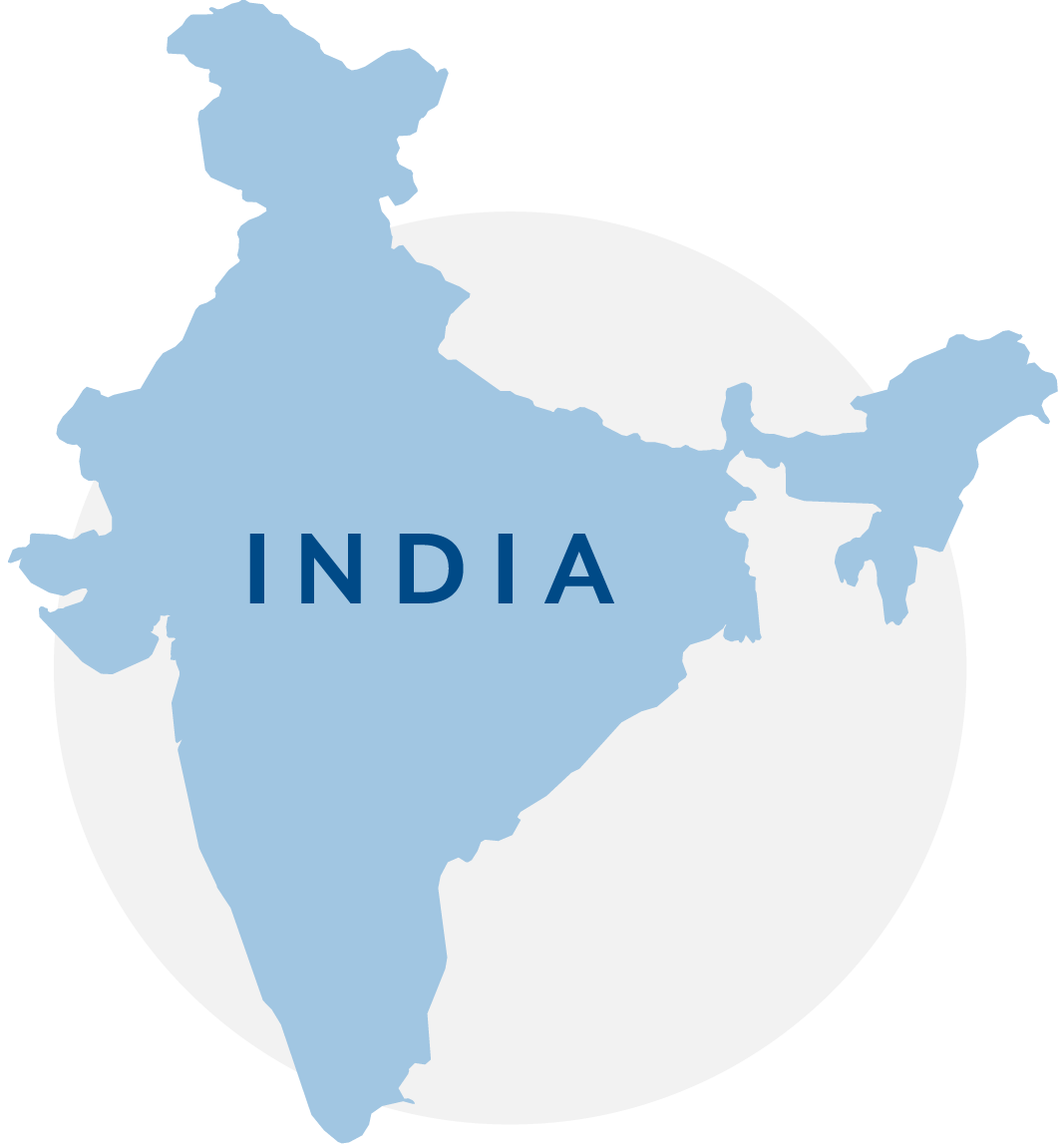
Global Connections
There are more than 38,000 KBR employees all across the planet. Though we are separated by miles, we are all connected and working together toward a common purpose — to design and deliver the future while improving our social and environmental impact. In Global Connections, we celebrate KBR’s culture of inclusion and diversity by highlighting employees working in different locations around the world and the communities where they live.
KBR in Gurgaon and Pune, India
"We are proud of what we have accomplished and what we will accomplish in the future."
— Doug Kelly, President, KBR Technology Solutions
The India Technology Center (ITC) is a major factor in KBR’s position as a leader among global process technology licensors.
The ITC, a part of the Technology Solutions business unit, comprises two locations — Gurgaon (ITCg), the hub for process and mechanical engineers, and Pune (ITCp), home to the Digital Solutions, Proprietary Equipment, and Catalyst teams.
While the locations are roughly 730 miles apart, the two dynamic teams that make up the ITC work together to propel KBR Technology Solutions to new heights.
“We’re looking more and more to the ITC for their expertise, energy and the desire to grow,” said Doug Kelly, President, KBR Technology Solutions. “We are proud of what we have accomplished and what we will accomplish in the future.”
ITC employees are a relatively young group, with 70% under 40 years of age and an average age of just over 37. The common factors that define the ITC, and which create a competitive edge for Technology Solutions, are energy, flexibility and an essential skill set. Additionally, the 12-hour time difference between India and the U.S. means engineering work can happen on a 24-hour cycle within KBR.

Cultural Focus
The ITC opened in 2008 in Gurgaon. The city of more than 2.5 million people is located in the state of Haryana in northern India within the Delhi National Capital Region, which constitutes New Delhi and several surrounding cities. Gurgaon began experiencing industrial growth in the late 1990s and has since become an important industrial and financial hub, with offices for more than 250 Fortune 500 companies. As the majority of people in Gurgaon have come from other parts of the country, it has a very cosmopolitan atmosphere and a vibrant young culture.
Many large businesses, including KBR, have bases in Gurgaon’s new modern office complexes, such as DLF Cyber City. Gurgaon is also home to India’s first live entertainment park, the Kingdom of Dreams, a large entertainment complex famous for theater shows ranging from Bollywood musicals to folk performances. For outdoor activities such as hiking, biking or birdwatching, people can head to the Sultanpur National Park or Tao Devi Lal Biodiversity Park.
Today, the ITC also includes Pune, a city of about 6.8 million people in the western Indian state of Maharashtra. Pune has emerged as a major destination for international students, particularly in the areas of IT, education and management. Although it is a major industrial metropolis, it is surrounded by nature, and its culture is a blend of old and new. That means there’s plenty to do, whether you want to shop at one of the city’s large malls, take in some cricket at the MCA Stadium, or see one of the area’s sites of historical significance, such as the Raigan Fort (once the home of the Maratha Empire) or the Shreemant Dagdusheth Halwai Ganpati Mandir, a temple visited by more than 100,000 pilgrims each year.

Celebrating Diversity
India, a country of 28 states and 8 union territories, is extremely diverse. This is evident during the celebration of various festivals throughout the year, such as Holi, Diwali, Ganesh Chaturthi, Onam and Christmas. Though people follow different religions, observe different customs and eat different food, they are one when it is about celebrating a joyous occasion. Even the official holiday calendar allows employees to choose their regional festivals — helpful when there are employees from more than 20 different states who represent just as many diverse traditions and speak different languages.
In fact, in India there are 22 major languages written in 13 different scripts and more than 720 dialects. In Gurgaon, Hindi is the most spoken language, while in Pune it’s Marathi. English is the primary language of college education. At the ITC, it’s common to hear employees switching from English to another language or dialect during a group conversation. That diversity provides an added advantage in the way the ITC is able to do business.

Social Engagement
Team building is a big part of the culture at the ITC. The young teams regularly participate in employee-organized activities, including group runs like half-marathons, cricket matches, yoga, Zumba classes and also more professionally driven events such as leadership workshops that focus on building collaboration between different teams.
ITC employees at both locations are also actively engaged in living the KBR Zero Harm culture, both socially and environmentally. The ITC no longer buys single-use plastic water bottles, opting instead for glass water jars in cafeterias and meeting rooms and refillable glass bottles for personal use. There are ongoing efforts to sensitize colleagues to recycling and reusing, responsible disposal of electronic waste, and other sustainability initiatives. And employees across the various teams are always encouraged to bring forward new ideas.
The young teams are also committed to having a positive social effect in their communities. Last year, for example, members of the ITCg’s IMPACT chapter partnered with Underprivileged Advancement by Youth, a nongovernmental organization that advocates for quality education for underprivileged children in India. Through this collaboration, KBR employees raised funds, donated clothes and school supplies, and also provided one-hour basic education lessons for students.


